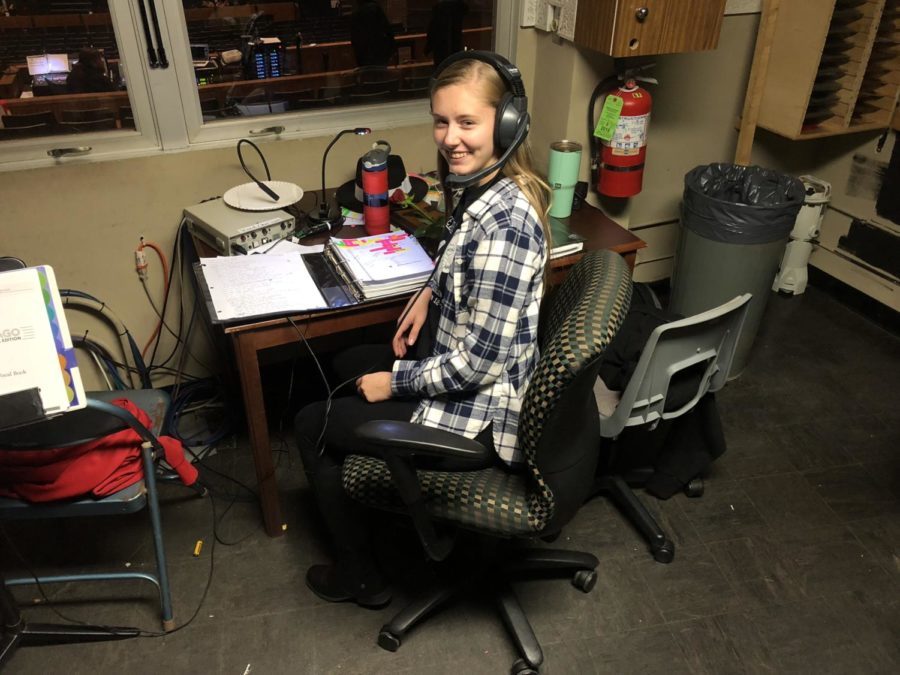Stage Manager Role: Powerhouse of Pickard
October 7, 2018
Pickard Auditorium functions like a cell in the body. The directors are the masterminds, the nucleus; they use scripts as DNA to build a show. The actors are cytoplasm, cushioning and making up the body of the cell. The crew, as ribosomes, make and move the set. But how does a show run without the mitochondria, the powerhouse of the cell?
This is when the stage manager assumes the role.
In a small room at the back of the auditorium sits senior Ari Vatne as she starts her role as stage manager for the fall musical, Chicago. A stage manager organizes and oversees all of the other crews; she calls the cues during the performances.
Every time a light changes, Ari decides where it goes and marks the spot with a cue.
“I also do this with run, fly and sound, depending on the show.”
Chicago had upward of 300 cues – leaving Ari full of stress and anxiety for the performances.
Although stage managing builds stress, it brings a fulfilling experience. Ari said the role allowed her to make her mark on Chicago; she is able to see the success of her hard work on the show. She also mentions how she loves theater: “It is in the moment experience that you can’t recreate.”
Ari hopes more audience members recognize and appreciate the hard work and the dedication of the crew in the future as they are often overlooked in the grand scheme of the show.
Take a look in Pickard sometime. See if the ribosomes are bustling along, trying to meet deadlines or the mitochondria is in its small room at the back of the theater, studying cues intently. Although this powerhouse role is essential, insight into the stage manager role is rare.


